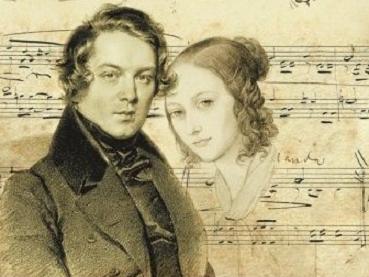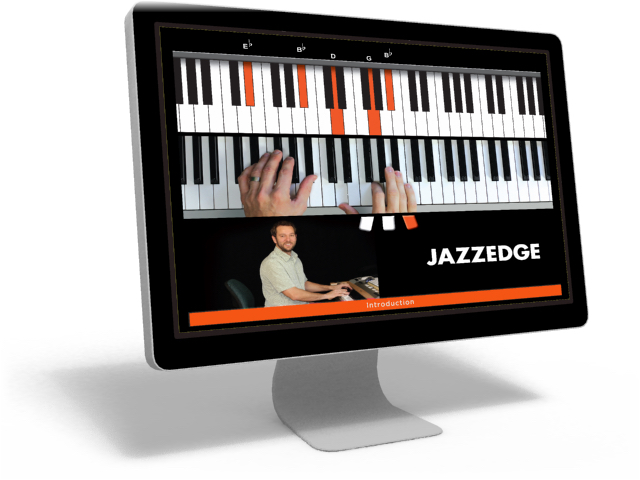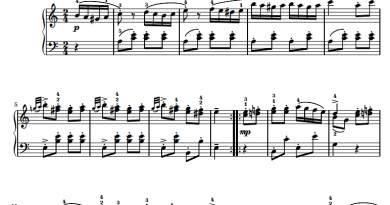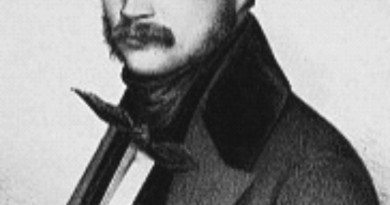Musical training and intelligence according to Robert Schumann
Second part
- Thibaut’s work “On the Purity of Tone-art” is a fine book about music. Read it frequently when you are older.
If you pass a church while the organ is being played, go in and listen. If you long to wait on the organ-bench yourself, try your little fingers and wonder at this great musical power. - Lose no opportunity of practicing on the organ; there is no instrument that so quickly revenges itself on anything unclean or impure in composition or playing as the organ.
Sing in choruses industriously, especially the middle voices. This will make you a good reader, and intelligent musician.


Looking for Piano Direction?
With your FREE Jazzedge Academy account you can access all of our Piano Blueprints and our exclusive 30-Day Piano Playbook. This includes sheet music and backing tracks.
No credit card or payment required. Just great free jazz and blues lessons.
Schumann and the Musical intelligence – training
- What is it to be intelligently musical! Yon are not o when wit! Eyes painfully fastened on the notes, you laboriously play a piece through; you are not so when you stop and find it impossible to proceed because some one has turned over two pages at once. But you are so when in playing a new piece, you almost force what is coming, when you play an old one by heart ; in short, when you have taken music not only in your fingers but into your head and heart.
- How may we become musical in that sense? Dear child, the principal requisites, a fine ear and a swift power of comprehension come like all things from above. But this foundation must be improved and increased. You cannot do this by shutting yourself up all day like a hermit, and practicing mechanical exercises, but through a vital, many-sided musical activity, and especially through familiarity with chorus and orchestra.
- You should early understand the compass of the human voice in its four principal kinds; listen to these in the chorus, try to discover in which intervals their principal strength lies, and in which they best express softness and tenderness.
- Listen attentively to old folks songs; these are a treasure of lovely melodies, and will teach you the characteristic of different nations.
- Practice reading in the old clefs at an early age. Else, many precious relics of the past will remain unknown to you.
- Observe the tone and character of the different instruments; try to impress their peculiar tone colors on your ear.
- Never omit hearing a good opera.
- Honor the old, but bring a warm heart to what is new. Do not b prejudiced against unknown names.
- Do not judge a composition on a first hearing of it; that which pleases moat at first is not always the best. Masters must be studied. Many things will only become clear to you when you are old.
In judging compositions, make a distinction between then’ as to whether they belong to art, or merely serve as the entertainment of amateurs. Stand up for the first! But it is not worthwhile to grow angry about the others. - “Melody” is the amateur’s war cry, and certainly, music without melody is no music. Therefore, you must understand what amateurs fancy the word means: Anything easy arid rhythmically pleasing. However, there are melodies of a very different stamp, and every time you open Bach, Beethoven, Mozart, etc., they will smile out at you in a thousand different ways; you will soon weary, if you know these, of the faded monotony of modern Italian opera melodies.
- It is a pleasant sign if you can pick out pretty melodies on the keyboard; but if such come to you unsought and not at the pianoforte, rejoices, for it proves that the inward sense of tone pulsates within you. Fingers must do what the head wills; not the reverse.
How to compose music – Robert Schumann’s Tips
- When you begin to compose do it all with your brain. Do not try the piece at the instrument until it is finished. If your piece proceeds from your heart, it will touch the hearts of others. If Heaven has gifted you with lively imagination you will often in lonely hours sit as though spell-bound at the piano, seeking to express the harmony that dwells within your minds ; and the more unclear the domain of harmony is yet to you, the more mysteriously you will feel yourself attracted as if into a magic circle. These are the happiest hours of youth. But beware of giving yourself up too often to a talent that will lead you to waste strength and time on shadow pictures. You will only obtain mastery of form and the power of clear construction through the firm outlines of the pen. Write more than you improvise therefore.
- You should early learn to conduct; observe good conductors; when alone practice conducting occasionally. This will help you in becoming clear regarding the compositions you are studying.
- Closely observe life as well as the other arts and sciences.
- The laws of morality are also laws of art.
- You are certain to rise through industry and perseverance.
- From a pound of iron, that costs only a few pence, many thousand watch-springs, the value of which runs into hundreds of thousands, may be made. Faithfully use the pound
Tips for musical training and intelligence
- Without enthusiasm, you will never accomplish anything in art.
- Art is not a means of amassing wealth. Become a continually greater artist; the rest will happen of itself.
- Your mind will only become clear when form has become clear to you.
- Only genius wholly understands genius.
- Some one has said that a perfect musician should be able to imagine a complicated orchestral work, which he listens to for the first time, in the written score before him. This is the most complete musicianship that can be supposed possible.
- Study is unending.



